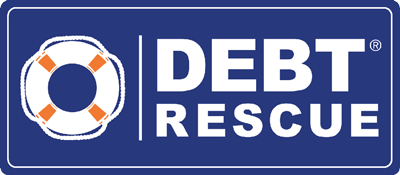Australian's are some of the luckiest humans on the planet. We live in a beautiful, free country abundant with opportunity. But for thousands of Australians, those opportunities come at a cost.
A house by the beach, an acreage in the bush or an inner city pad. A trip to the Red Centre, a week in tropical Bali or an around the world adventure. A family car, a 4WD or a Smartcar. Any combination of these elements make up our great Australian lifestyle. But to achieve these things, Australians are putting themselves in to huge amounts of debt. In fact, RBA figures show the household debt to disposable income ratios is at an historical high.
Increasingly, Aussies are turning to a Part 9 Debt Agreement to solve their debt worries. In fact in the March quarter this year, AFSA recorded a 15.6% increase in Debt Agreement Application to an all time high of 2968. With the current state of the economy, these figures are expected to remain high for the foreseeable future.
So what can you do to keep you head above water?
The Warning Signs of Slipping Debt
If you can pay your debts, bills and everyday living expenses week-to-week, but you don't have any money left over to put aside as savings, you are not living within your means.
You might feel as though you are managing fine, but what if something happens? What if you can't work for a few weeks? What if your rent goes up? What if there is a medical emergency? You won't have the money available to deal with your emergency, cover your debts and carry on life as usual.
Many Aussies have an 'emergency credit card' to fall back on when times get tough. But really, you are just getting further into debt in your darkest hour. Unless you have money to repay your credit card within the month, you shouldn't use it.
What You Should do
If you are worried about not having enough money there are some things you can do to protect your lifestyle and safeguard you in an emergency.
Get Insured
Home and car insurance are a given, but do you have life insurance and income protection? You can be covered for a minimum cost and having income protection can provide much needed funds in your time of need. The same goes for life insurance, especially if your income contribute to a household and family. It might seem like a wasted expense, but it will be your saving grace should you ever need it.
Rainy Day Fund
You should have a savings account with a few thousands dollars in it. This money can pay for the excess on your insurance claim, a new appliance if one breaks down, medical emergencies, the bond for a new apartment - all those exorbitant expenses that pop up when you least expect them. Don't put pressure on yourself to get this fund saved immediately. Just squirrel away what you can, when you can and promise yourself you won't draw on it for trivial things.
Set a Budget
You can't expect to be able to organise your money if you don't know how much you have and what you need to spend it on. Keep track of your expenses for a few weeks and then have a look back over what you are spending, you might be shocked at how much you spend on coffee, takeaway lunches, clothes or magazines. You'll become interested and excited about finding new ways to save money.
Don't Be so Hard on Yourself
People make mistakes and managing your money is not an easy task. If you are experiencing real difficulties repaying your debts, don't be afraid to ask for help. You can call a free financial counsellor on 1800 007 007. They will be able to assist you with your finances. If you want to reduce your debts and repay them with a set repayment plan over 5 years, Debt Rescue can assist you with a Part 9 Debt Agreement. To discuss solutions specifically for repaying debts, call us on 1800 003 328.
For more information on budgeting and how it can help get your finances back on track, check out our budgeting page.
-137x60px.png)




